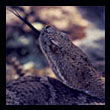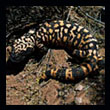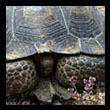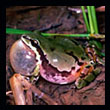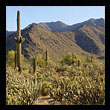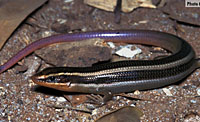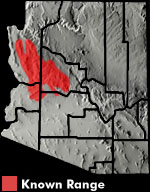Online Field Guide to The Reptiles and Amphibians of Arizona

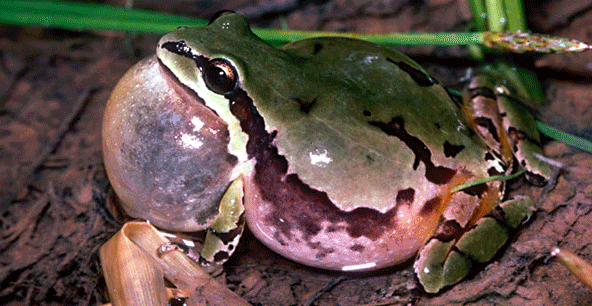
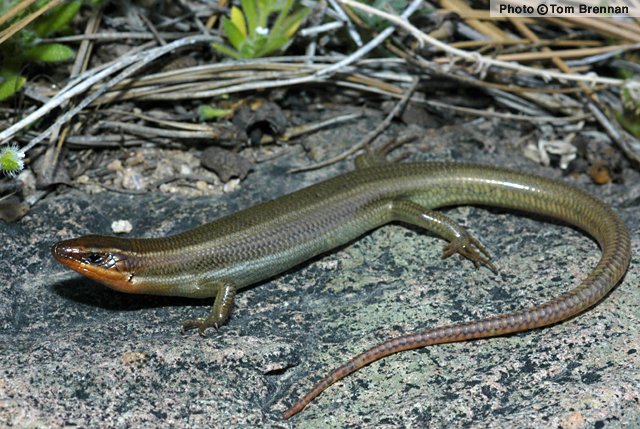
Yavapai County, AZ
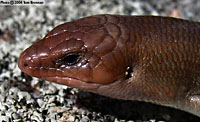 Yavapai Co., AZ |
| GILBERT’S SKINK Plestiodon gilberti | |
|
DESCRIPTION: A medium to large (up to 114 mm or 4.5″ from snout to vent), shiny lizard with a long, thick tail (when not regenerated), a stout body, and short limbs. Coloration is plain tan, cream, gray-brown, or olive. Some adults have orange-red coloration on the head. Young are dark chocolate brown with a pink tail and four light stripes that extend from the snout to the base of the tail. The scales are large, rounded, smooth, and very shiny. Its lack of dark markings distinguish this lizard from the similar looking Great Plains Skink. HABITAT: Gilbert’s Skink inhabits a variety of communities ranging from riparian corridors within Arizona Upland Sonoran Desertscrub through Petran Montane Conifer Forest. Within these communities it occupies a variety of mesic environments ranging from low, flat, river banks to steep, well-shaded, rocky slopes. BEHAVIOR: Active during the day. Most activity occurs under surface cover or on moist overcast days. This secretive ground-dweller shelters under logs, rocks, leaf litter, and other surface debris. When spotted it can be quite difficult to capture as it quickly slides and zigzags through the rocks and surface debris. It is capable of casting off (and regenerating) the tail. Pursuers and predators often end up with nothing but a wiggling tail. DIET: The Gilbert’s Skink feeds on a variety of insects and spiders. REPRODUCTION: A clutch of 3 to 9 eggs is laid in summer. Eggs are laid in a moist underground nest. Brennan, T. C., & A. T. Holycross. 2006. A Field Guide to Amphibians and Reptiles in Arizona. Arizona Game and Fish Department. Phoenix, AZ Brennan, T. C., & A. T. Holycross. 2005. A Field Guide to Amphibians and Reptiles of Maricopa County. Arizona Game and Fish Department. Phoenix, AZ |
|
Visit Partners in Amphibian and Reptile Conservation:


HOME
Copyright © 2023, Arizona Game and Fish Department. All rights reserved.
If you make use of the textual contents of this site in reports, publications, etc. please cite and credit the author(s) and photographer(s). All photos on this website are copyrighted. However, those found in the species account section may be used for any noncommercial scientific, educational, or conservation purposes provided that photographs are not altered and continue to bear the copyright symbol and name of the photographer. Please contact the photographer regarding commercial use of copyrighted photographs.
